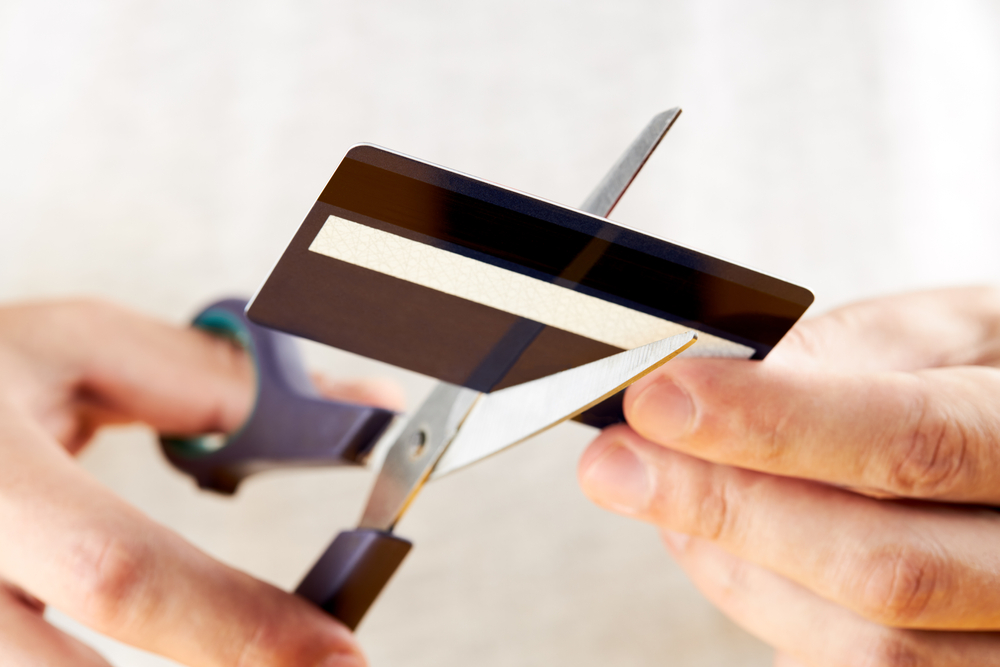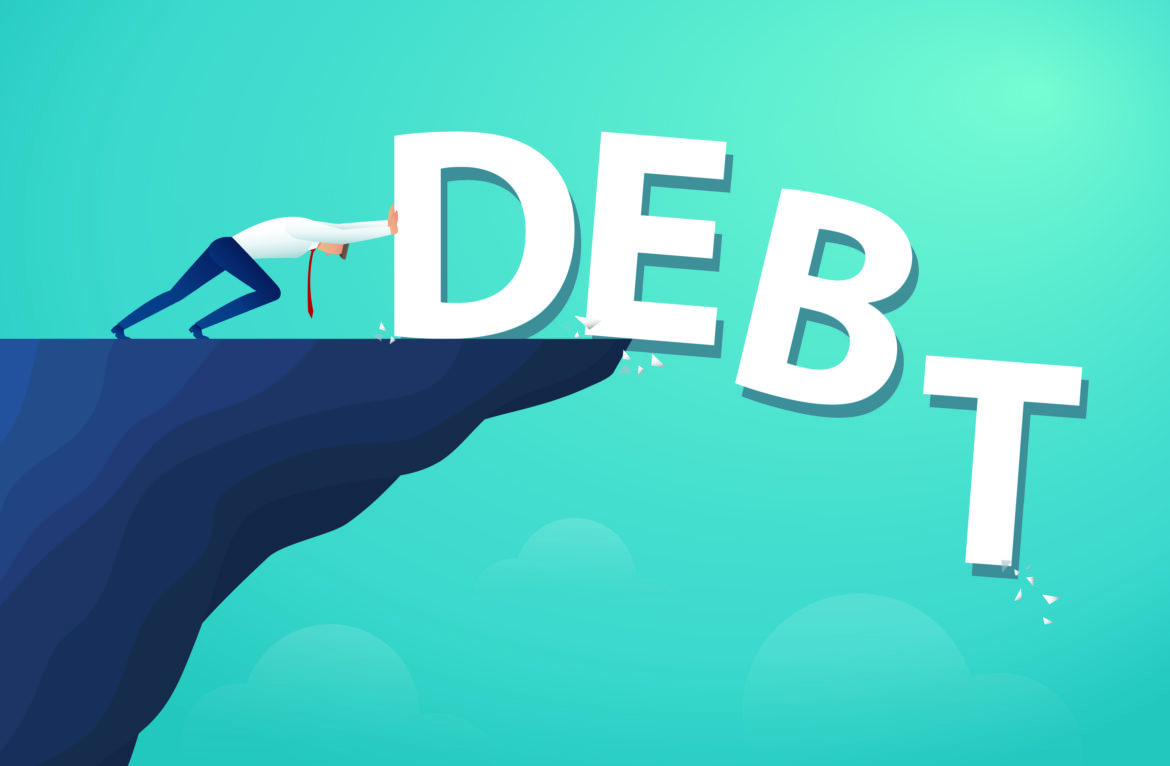It’s possible to dig yourself out of a financial hole if you’re willing to do the work. But you can’t stop there. It’s absolutely crucial to establish smart money habits in order to build your financial future — and to keep from winding up back in the hole.
Maybe you’ve stalled financially because you never learned how to manage money. Or maybe you’re mired in debt due to circumstances beyond your control, such as job loss or serious illness.
It doesn’t matter how you got there. What matters is that you get yourself out. Use these basic tactics to get a handle on your finances.
Start Right Now
The best time to have started getting your finances together was 20 years ago. The second-best time is right now.
Stop Digging
If you’re in debt, quit adding to it. Easier said than done, I know: My divorce attorney charged by the minute, for heaven’s sake, yet I couldn’t do without representation.
What could I do without? Almost everything else. I’d always been fairly thrifty, so it wasn’t as hard for me as it might be for others. However, I hadn’t done such a deep dive into frugality since my single-mom days, when I did all the laundry (including diapers) on a scrub-board in the sink. Not everyone can (or wants to) go to the lengths I did, such as living mostly on dry beans and homemade soups, using coupon/rebate deals to stretch my budget, buying almost no new clothing for years, recycling cans picked up on walks around the neighbourhood, looking for any possible side gig (babysitting, participating in medical studies, shovelling snow) to add a few dollars to debt payoff.

Adopt a Frugal Filter
To be clear: Your tolerance for frugal hacks is as unique as you are. I can’t force you to wash out Ziploc bags or to shovel snow for that matter. What I can do is urge you to adopt the main attitude that helped get me through those five years — something I call the Frugal Filter:
- Do I really need this whatever-it-is?
- Is there something I already have that might work?
- If I absolutely must get this item, is there a way to do so for free (borrowing it from a friend, using Freecycle)? And if not, how can I make it as affordable as possible? (Some examples: thrift store, yard sale, cashing in rewards points for gift cards to pay for it.)
Track Your Spending
Start by adding up all your income sources. Next, list all your obligations, including but not limited to mortgage, minimum credit card payments, utilities, insurance car note, and legally mandated payments (e.g. alimony or child support).
Subtract the second number from the first. If your monthly expenses are lower than your current income, that’s a good sign. But keep in mind that these are your anticipated expenses. You’ll also need money for irregular expenses such as home repair or a replacement vehicle, as well as for vacations, gift-giving, and other things that make our lives richer.
Tracking spending means you’ll know where you stand. The next thing to do is look for the best ways to use your money.
Create a Workable Budget
A lot of people swear by the 50/30/20 plan: Spend no more than half your after-tax income on needs, 30% on things you want, and 20% on savings and debt repayment.
Arrange your current spending into those categories. If you’re spending more than you should in any given department, find ways to bring costs down. For example, you might be able to refinance the mortgage and cut grocery costs (more on that in a minute) to get your “needs” spending under 50% of your take-home pay.
The categories can be flexible, though. For example, if debt repayment is more important to you right now than going out to eat, you could use some of your “wants” dollars toward paying down your credit cards.
Speaking of which, you also need to…
Make a Debt Payoff Plan
Earlier you added up your basic monthly expenses. But what’s the total amount owed? A lot of people honestly don’t know, because they never added it up. Full disclosure: I still don’t know how much my divorce cost, because I don’t want to know. (Hint: It was a lot.)
Don’t be like me. Add up your credit card balances while seated, because the total might make you feel a little faint (especially when you consider how much interest you’re paying). Let that Big Number inspire you to get real about paying it off.
Reprioritize your mortgage
First: If you’re making extra payments on your current mortgage, stop for now and put that money against your credit card balance. Talk with a mortgage specialist about the possibility of refinancing; your loan would be longer, but the money you’d save each month can be used against higher-interest debt.
Talk to your creditors
Next, call your credit card issuers and ask for lower interest rates. There’s no guarantee you’ll get them, but it can’t hurt to ask.
Personal loan
Another credit card debt tactic is a personal loan, that is if you can get a decent rate. You’d need an ironclad payoff plan for this option, too. And no matter how you pay off your debt, you absolutely need a plan to keep you from running up the credit cards all over again.
Stop Shopping
Our consumerist culture tells us that if we want something, then we should have it. This is why some people shop for fun, I guess, even if they don’t technically need anything.
“Need” is the operative word. Food, shelter, basic clothing, and utilities are needs. Everything else is a parade of wants.
There’s nothing wrong with wanting things. But there’s a whole lot that’s wrong with buying things we can’t actually afford. So if you shop for fun, stop doing that. Stop it right now. Un-bookmark your favorite shopping sites. Avoid brick-and-mortar stores

Enlist the Help of a Friend
Find a friend who’s also trying to get out of the financial hole, and the two of you can support each other. (“I just saw the most amazing price on cheese straighteners and I really want to get one! Talk me out of it!”)
Focus on What You Have, Not What You Want
Here’s what worked for me: Thinking about what I did have, rather than obsessing about what I didn’t. Sounds corny, but hear me out. While living on about $1,000 a month (and still helping my daughter), I made an actual list of my advantages: decent health, a university scholarship, a library card, a part-time job, a 99-cent radio from the St. Vincent de Paul thrift shop, and the absolute conviction that I would one day be back in the black.
Be an Adult
The only person who can help me is me,” I said out loud, more than once, developing a stoic pride in — once more! — making do on nothing. I was dirt-poor but I was not dirt. I had a plan. (I also still had the scrub-board, and even used it sometimes.)
Sure, sometimes I still wanted stuff I couldn’t afford. Most of the time, my attitude of gratitude helped me power through. After all, I had things that were important to me and I knew if I just kept working at it, my debt would be gone. It wasn’t easy. But as my dad used to say, “That’s why they call it ‘work.’ If it were fun, they’d call it ‘fun.’”
Be an adult. Own your mistakes or your misfortunes. And do the work
CONCLUSION
In the end I would like to conclude this article by saying that If you’ve found yourself stuck in a rut, it is possible to dig yourself out, but only if you’re willing to put in the work. It’s crucial to establish smart money habits in order to build yourself a healthy financial future.
Maybe you’ve never learned how to manage your money properly, or maybe you’re in debt due to circumstances beyond your control.
It doesn’t matter how you got to where you are now. What matters is how you’re going to get yourself out. Use a few of these pointers to start digging yourself out.
